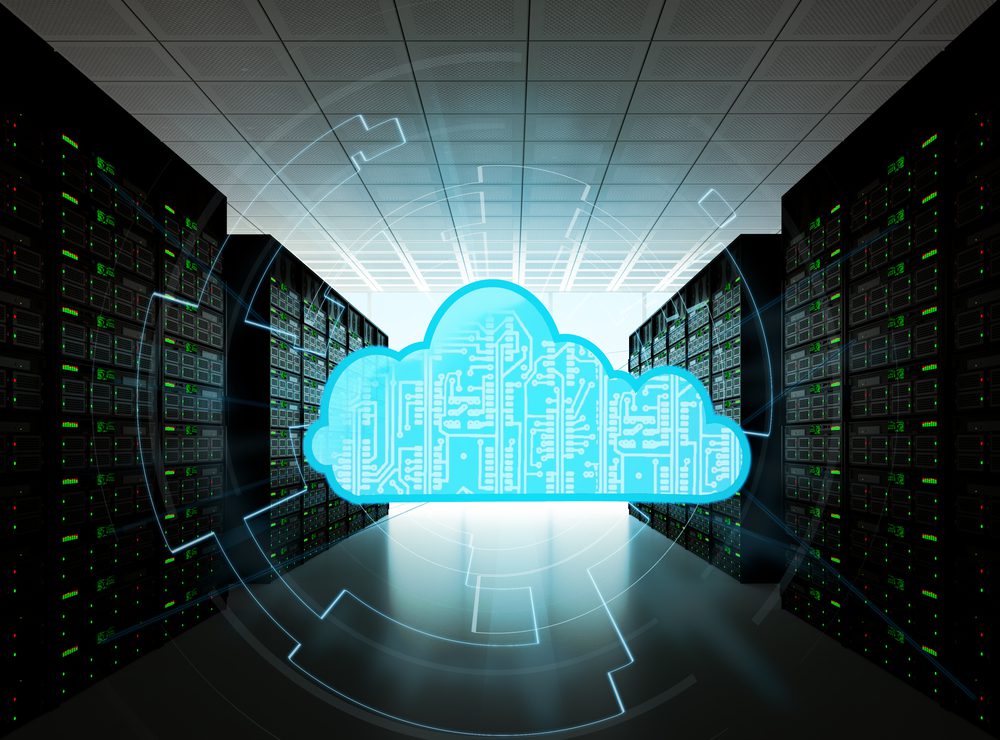
Implementing reliable and effective IT solutions to your network infrastructure is crucial to keeping pace with competitors, especially in today’s fast-moving digital world.
Whether your business is designing its first data system, migrating from an existing one, or facing obstacles with data storage, network speed, user experience, or security, you must pick an implementation strategy best suited to your needs. These strategies often employ solutions from a third-party provider, meaning companies typically have two alternatives from which to choose—colocation data centers vs. cloud.
What is colocation?
Colocation is the process of deploying and hosting your servers and equipment in a third-party data center, allowing you to use their high-tech facilities and infrastructure instead of building out everything in your own space. It’s called colocation because you co-locate your equipment there – you’re renting cabinet space in a shared facility with other customers, instead of using your own dedicated space. That means you still get to use your own servers, storage devices, and other hardware, but you can rely on the colocation facility to provide redundant power, climate control, physical security, and network infrastructure.
What is cloud computing?
In a typical cloud service paradigm, you purchase web-based computing services directly from a provider. The provider charges you on a resources-used basis, like how homeowners pay for utilities. That means you’re not providing or renting any physical equipment. Your data and services are decoupled from the underlying hardware, so you may be sharing the same servers with many other customers.
In cloud computing, the service provider assumes full responsibility for creating, installing, and maintaining its network infrastructure, removing those duties from your plate. In addition, cloud providers follow the “shared responsibility model,” which means they’re responsible for some aspects of security (such as physically securing their data centers) while you’re responsible for other parts (such as encryption and password protection of data).
So, for instance, you could use a cloud-based email service (such as Office 365 or Google) without needing to acquire, configure, and install any physical servers or rent dedicated cabinet space in a colocation facility. You may not know exactly where your data is physically hosted or who else is sharing resources with you, but you can trust that your provider is maintaining the hardware and infrastructure as well as keeping client data separate and secure.
What to consider when choosing colocation data center vs cloud?
The choice between a colocation data center and the cloud is not necessarily mutually exclusive. You can mix and match your preferred security architecture, selecting different solutions for specific activities from both options.
Migrating entire systems to a colocation facility or a cloud service provider without first examining each solution’s strengths and weaknesses will not fully leverage all possibilities for adopting harmonious solutions.
However, determining where to allocate IT resources necessitates understanding the differences between colocation data centers and cloud-based solutions.
Here are some of the key considerations when choosing between the two:
Cost
When compared to a cloud-based option, colocation services have more significant upfront expenses. You must acquire the hardware themselves in place of moving data to a cloud provider’s servers.
However, while cloud hosting services provide immediate financial relief, its pricing structure for additional features often shifts onus back to colocation. Cloud services are scalable and provide better flexibility, but accessing those add-on capabilities can become prohibitively expensive over time.
In other words, the cost of each option may depend on your specific needs. For example, If you’re looking to save money upfront, it’s better to go with a cloud-based option. However, if you want more control of your costs going forward, choose a colocation.
Compliance
Both colocation facilities and cloud providers have a shared responsibility approach for data protection and compliance, meaning each is partially liable for certain services. At the same time, you are responsible for the remainder.
However, cloud services add a layer of complexity because they do not store client data on a dedicated server. Instead, it sits on communal servers along with data collected by other companies. This remote design takes much of the control out of your hands, which exposes you to more risk.
You might adhere to all necessary rules and regulations on your end, but the third-party cloud provider does not. If that happens, you are ultimately responsible for any issues discovered during an audit, regardless of the offense’s source. For example, certain laws require that you keep and process regulated data within a specific geographic region – like the General Data Protection Regulation in the European Union, which specifies that some kinds of data must stay within the EU. If your cloud provider fails to keep that data on EU-based servers, then you could be fined for non-compliance.
To address this, you must employ certified cloud providers to protect against inadvertent non-compliance. These third parties monitor and track your hosted data and the specific technicians and engineers who access it. However, like any other added service, certified providers are more expensive than conventional cloud providers.
Maintaining in-house data storage or utilizing a colocation facility gives you complete control over your hardware and networking, enabling you to monitor compliance internally without the added costs of certified third-party engagements. However, compliant cloud computing is still possible, and even with the additional cost of compliance monitoring and other solutions it can be less expensive than colocation. You’ll need to weigh the risks, costs, and benefits to determine whether a compliant cloud solution is worthwhile for your enterprise.
Security
Both cloud and colocation data centers typically provide more security than on-site alternatives. However, many executives operate under the false notion that hosted services exacerbate risk exposure. As a result, they avoid third-party solutions in favor of internal systems.
The truth is, third-party service providers have the resources and skills necessary to deal with ever-evolving security challenges. They are often more capable of identifying and mitigating potential threats than fully-staffed, in-house IT departments.
However, colocation may be preferred over a cloud-based solution if you possess the resources and expertise necessary to implement an in-house security system. Under this arrangement, the colocation facility would manage the frameworks’ physical and infrastructural components. Your business would then drive a remote operations center.
Backup and recovery
Many providers view backup and recovery packages as high-value features almost exclusively in comprehensive managed services. Colocation and cloud services providers typically offer these packages as built-in features, providing significant cost savings to the user.
But not all disaster recovery solutions enjoy the same degree of quality and resilience. Data centers that offer business continuity solutions also need to invest in top-of-the-line infrastructure to make those solutions usable.
In a conventional disaster recovery design, a secondary physical location typically houses the additional data center storage. During an interruption or cyberattack, a resolution requires a manual procedure on-site at the disaster recovery location.
Colocation facilities do not typically provide data backup or recovery services. They instead offer redundant power capabilities and ISP connections. These measures allow you to switch seamlessly to your backup system or host your infrastructure in multiple colocation facilities in the event of an interruption. That means you’ll need to implement your own data backup and recovery solution, or pay an additional fee for managed backups through your colocation provider.
In contrast, cloud-based disaster recovery is like cloud computing in that it allows your business to store and retrieve system data via a remote cloud platform. After an interruption, disaster recovery with cloud computing entails storing critical data and apps in the cloud. Cloud-based disaster recovery can be automated, which could help relieve some of the stress that comes with a disaster.
Cloud-based disaster recovery provides both redundancy and data backup and recovery, whereas colocation typically only comes with redundancy. That’s why cloud computing has a clear advantage over colocation when it comes to data availability and resilience.
Connectivity
Enhanced and more extensive connections are critical benefits of transferring computer processes into a data center setting. Well-regarded centers invest substantially in offering their clients top-notch bandwidth, connection speed, and dependability. Some of the technologies that enable these benefits include fiber connections, redundant services, etc.
On-premises systems frequently lack modern network infrastructure. Even those businesses with access to innovative connections will soon face obsolescence in a tech-heavy world where digital solutions constantly evolve. One common example is wireless cellular technology – many companies invested in 3G or 4G cellular infrastructure and devices, and are now facing costly upgrades to the faster, higher-bandwidth, and more reliable 5G technology.
Colocation is a sophisticated approach to boost the throughput of an already equipped server. It enables your business to utilize optimal bandwidth without constantly developing, implementing, and managing modifications to on-site system design due to the colocation facility’s up-to-date technology.
Most managed cloud computing contracts already include terms for updating system hardware and software in response to these advancements. Because the infrastructure they provide to customers is their primary service, they have added financial incentives to refresh their network hardware and connectivity devices.
Both colocation data centers and cloud providers offer connectivity benefits over on-premises data hosting.
Make the smart choice and get in touch with ZPE
Colocation and cloud services offer your business alternatives to house your data. Choosing the right solution is a complex decision that will depend greatly on your organization’s specific networking and computing needs.
You don’t have to decide on your own.
Get in touch with our experts to learn more about colocation data center vs cloud solutions and how they can augment your network infrastructure
